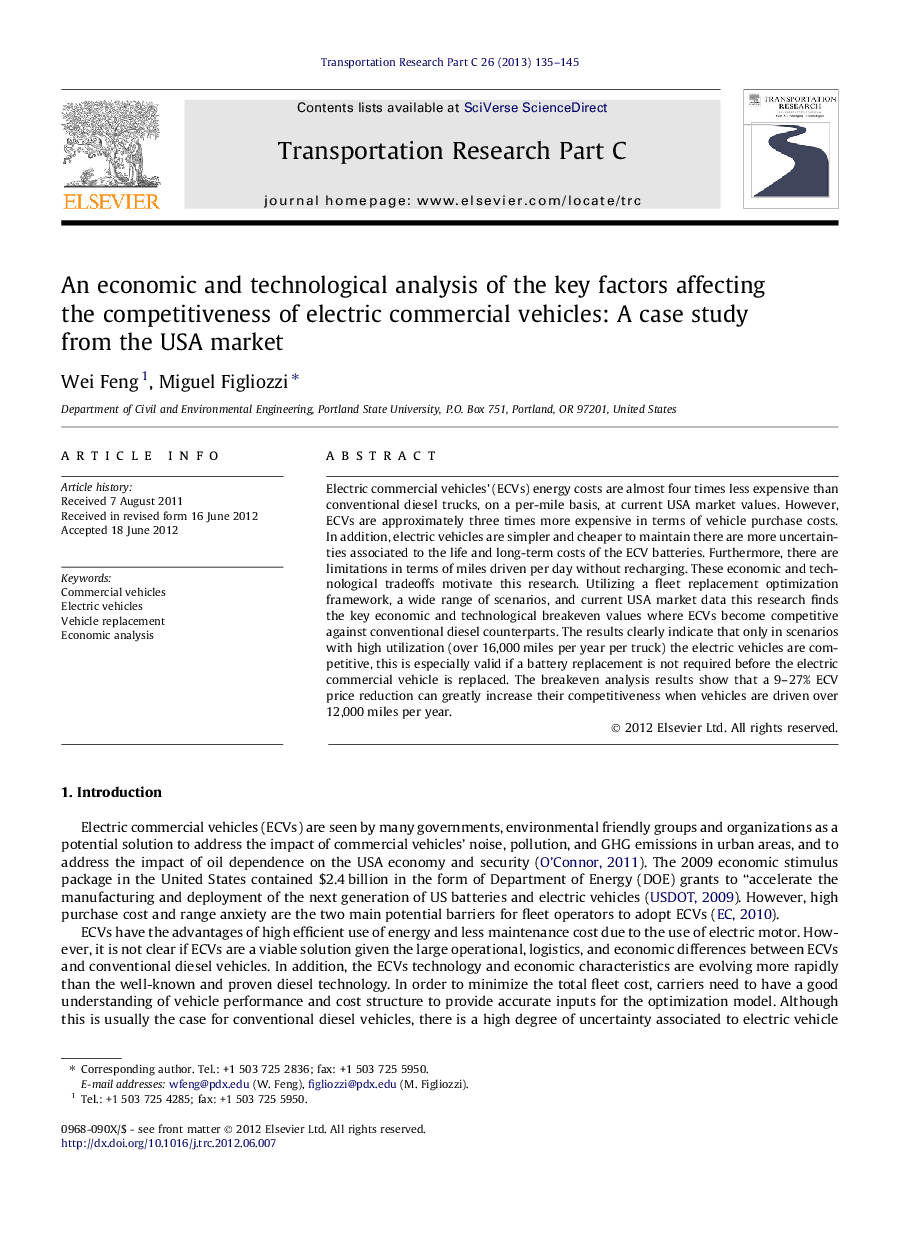| Article ID | Journal | Published Year | Pages | File Type |
|---|---|---|---|---|
| 525062 | Transportation Research Part C: Emerging Technologies | 2013 | 11 Pages |
Electric commercial vehicles’ (ECVs) energy costs are almost four times less expensive than conventional diesel trucks, on a per-mile basis, at current USA market values. However, ECVs are approximately three times more expensive in terms of vehicle purchase costs. In addition, electric vehicles are simpler and cheaper to maintain there are more uncertainties associated to the life and long-term costs of the ECV batteries. Furthermore, there are limitations in terms of miles driven per day without recharging. These economic and technological tradeoffs motivate this research. Utilizing a fleet replacement optimization framework, a wide range of scenarios, and current USA market data this research finds the key economic and technological breakeven values where ECVs become competitive against conventional diesel counterparts. The results clearly indicate that only in scenarios with high utilization (over 16,000 miles per year per truck) the electric vehicles are competitive, this is especially valid if a battery replacement is not required before the electric commercial vehicle is replaced. The breakeven analysis results show that a 9–27% ECV price reduction can greatly increase their competitiveness when vehicles are driven over 12,000 miles per year.
► We analyze the competitiveness of electric and diesel commercial vehicles. ► An optimal fleet replacement framework is employed to find breakeven points. ► The key barriers to ECV competitiveness are more economical than technological. ► A 9–27% EV price reduction can greatly increase their competitiveness. ► Under moderate utilization levels, commercial electric vehicles can be competitive.
